Kidney Function Test – 2 Pack
£3.49
- Easy to use home health test
- Results in minutes
- As reliable as a hospital test
This test is intended to detect the presence of Creatinine, Specific gravity and Protein in the urine. These are indicators which if detected by using this test may indicate the presence of kidney disease.
Pack contains 2 Tests for Fast & Simple Home Screening
This test is intended to detect the presence of Creatinine, Specific gravity and Protein in the urine. These are indicators which if detected by using this test may indicate the presence of kidney disease.
Introduction
Your kidneys are bean-shaped organs, each about the size of your fist. They are located near the middle of your back, just below the rib cage. Kidneys work as filters that filter wate products and extra water from your blood and produce urine as a result. Urine flows to your bladder through tubes called ureters. Your bladder stores the urine which will pass through the urethra in the process of urination.
The average adult passes between 0.8L and 2.6L per day, depending on the fluids a person consumes. The volume formed at night is about half that formed in the day time. The tiny units inside your kidneys, called nephrons, are the actual filtering unit. Every kidney has about a million nephrons.
Most kidney diseases attack the nephrons, altering their ability to filter blood and produce urine.
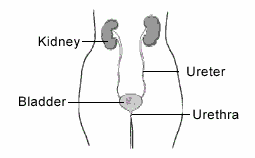
Common causes of kidney disease:
- Diabetes
- High blood pressure.
- Poisons
- Certain drugs
- Cancer
What are the types and severity of kidney diseases?
- Acute Renal Failure (AFR): This type occurs quickly and suddenly. It is caused as a result of an accident that injures the kidney, loosing lots of blood, some poisons and drugs. These conditions may lead to permanent loss of kidney function. Acute renal failure can still be reversed if your kidneys are not seriously damaged.
- Chronic Kidney Disease (CKD): This type involves the gradual loss of kidney function. It happens slowly and may remain asymptomatic for years. People with CKD are more susceptible to heart attacks and strokes. Most kidney problems are under this category.
- End-Stage Renal Disease (ESRD): This condition involves total or nearly total permanent loss of kidney function. Dialysis or transplantation is vital for people with ESRD to stay alive.
What are the signs of kidney disease?
At early stages of a kidney disease, people usually do not feel sick at all. If your kidney disease gets worse you may experience one of the following symptoms: You may need to urinate more often or less often. You may feel tired or itchy (unable to relax). You may lose your appetite or experience nausea (the state that precedes vomiting) and vomiting. Your hands or feet may swell or feel numb (lacking sensation). You may get drowsy (showing lack of attention) or have trouble concentrating. Your skin may darken. You may have muscle cramps (a painful and involuntary muscle contraction).
How can you control CKD?
At early stages of a kidney disease, you may be able to take certain steps to make your kidneys last longer. Since CKD patients are susceptible to heart attacks, strokes and anemia (a condition in which the blood does not contain enough red blood cells), they should make sure to minimize the factors that increase the risk of such conditions. Below are brief notes on how to minimize the risk of CKD:
- Controlling your blood glucose
- Controlling your blood pressure
- Following a low-protein diet
- Maintaining healthy levels of cholesterol in your blood
- Quitting smoking
How to test for kidney failure?
Kidney failure means that the kidney will lose one or more of the following functions:
- Filtering ability: Normal nephrones acts as barriers for Red blood cells and large molecules such as proteins. Losing this ability, means that protein and/or RBCs are likely to be seen in urine. Since the protein is the first to appear and RBCs will be a sign of later stage. Testing protein in urine can be considered as a diagnostic tool for kidney failure.
- Concentrating ability: after filtering, kidney will reabsorb almost 99% of the filtrate back to the blood to retain body water. Loosing this ability means that the body will loose more water. Clear signs for this are the increased frequency of urinations and diluted urine. Specific gravity test will serve as a measure of how much the urine is concentrated.
- By products removing: a major task for the kidneys is to help the body getting red of metabolism waste products. The most famous are Urea and Creatinine. These two compounds are usually present in the urine at high concentrations. Having them at low level in urine means that they are not filtered and they are kept in blood. Urea is a byproduct of protein while creatinine is a by-product of muscle energy metabolism. Accordingly, concentration of Urea may be affected by the amount of protein taken in the diet. Based on that creatinine is considered as a more specific test for kidney failure.
Based on the above, Atlas is providing a urine test for Creatinine, Protein and specific gravity to be used as an aid to evaluate kidney function.

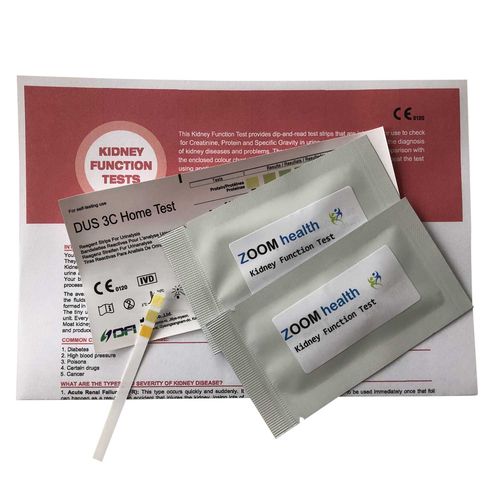


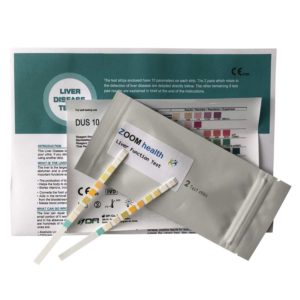
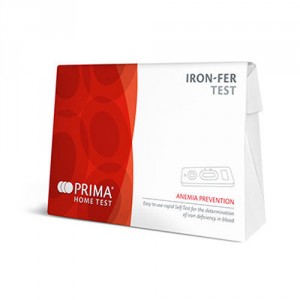

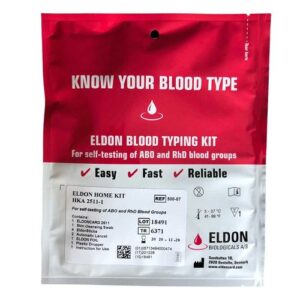
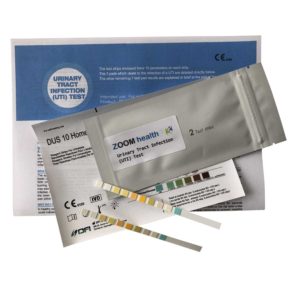
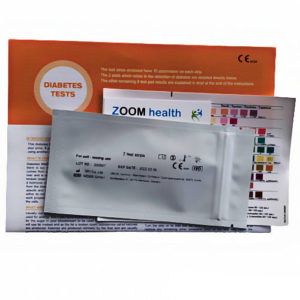

Graeme (verified owner) –